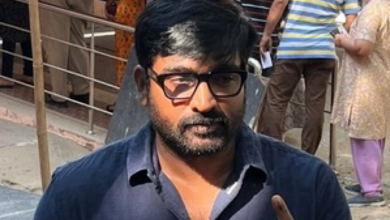Introducing the guy who ‘founded’ Bollywood, provided the first ever Rs 1-crore success, invented the anti-hero and masala film formulas, and is now forgotten
Bollywood is a varied film business as it now exists. From massive blockbusters like Jawan to slice-of-life dramas like Three of Us, Hindi cinema has it all. However, for many years, the Hindi cinema industry has been seen globally as a creator of vibrant, boisterous movies with plenty of dancing, singing, and “masala.” In actuality, the term “masala” has evolved to refer to an Indian cinema genre that includes only enjoyable content. And while it all came about over many years and decades, it was all really begun by one individual.

The one who “founded” Bollywood
The recall value of a Guru Dutt, Yash Chopra, or even a Shakti Samanta is not possessed by filmmaker Gyan Mukherjee. All of them, however, were impacted by his writings, and Samanta and Dutt received training from him. Mukherjee started his career in the 1930s in Calcutta and shortly after relocated to Bombay to work for Bomay Talkies. Based on the idea that “crime doesn’t pay,” he made his directing debut in 1940 with the film Geeta. He then went on to make Jhoola, which had the cliché of “boy meets girl.” He was the director of Kismet, the largest Indian film at the time, which debuted the idea of the anti-hero in Indian cinema and became the first to gross one crore rupees in 1943.
Due to this, Gyan Mukherjee continued to play around with these tried-and-true formulas, adding new cliches like “lost and found” and double characters to his films. As the progenitor of masala films, he is recognized for having shaped the genre, which subsequently saw the expansion of Manmohan Desai and his protégé Shakti Samanta into a mainstay of Indian cinema pleasure.
What made Gyan Mukherjee disappear?
However, Gyan Mukherjee’s reign as the formula king was short-lived. During his career, he only directed ten films, the latest being Shatranj in 1956. Mukherjee, 47, departed from this life that same year. Shakti Samanta developed his formula approach in bestsellers like Aradhana and Amar Prem, while his mentor Guru Dutt dedicated his 1957 masterpiece Pyaasa to Mukherjee. However, many of Mukherjee’s films were reduced to mere recollections due to his untimely demise. Even Yash Chopra has hailed him as an influence, yet many of his films have just recently received widespread acclaim. In contrast, Guru Dutt’s films have become part of popular culture.







